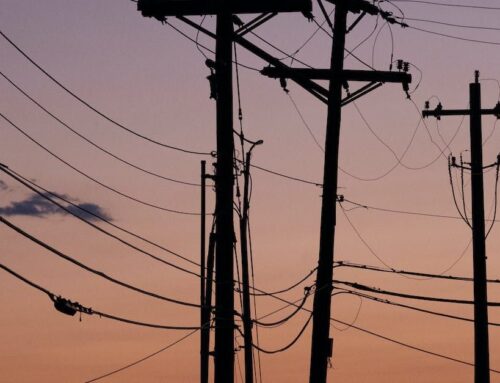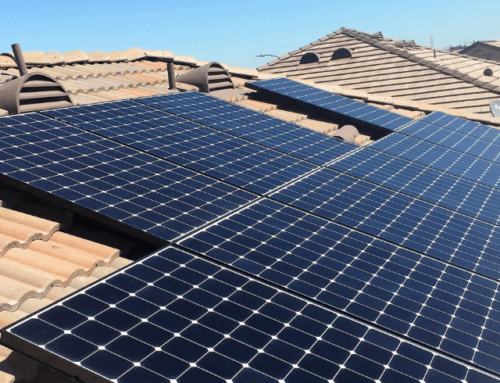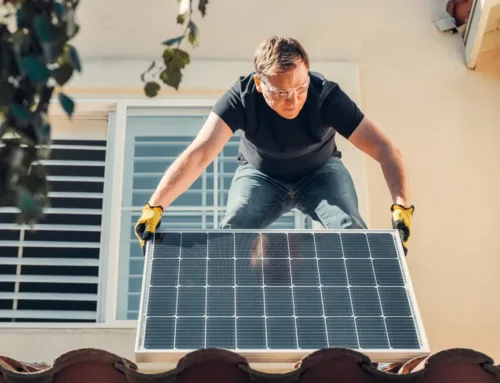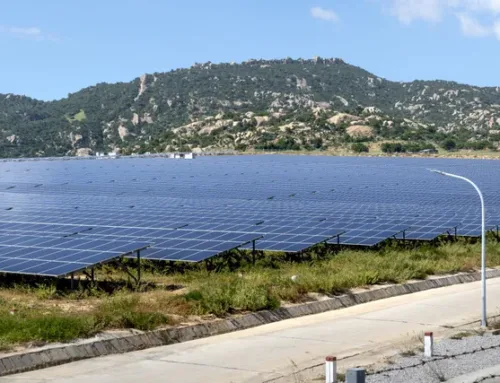The newest technology for home energy use is solar power. But is solar power right for every home? Once the sun’s power has been collected in solar panels how is it stored and used by the home’s electric system? Understanding how solar power works and how the energy is stored is the first step to converting your home to solar power and reaping the many benefits.
How Solar Power Works
The biggest question on homeowner’s minds when they consider changing home power sources is how solar power works. Solar power equipment such as panels converts sunlight into electrical energy. They do this with either photovoltaic or PV panels or by using mirrors that concentrate solar radiation. The energy that is produced is then stored in thermal storage or more commonly in batteries. The power produced and stored is then sold to the energy grid or used for the home’s power needs.
Companies that supply equipment and technology for solar energy such as Sunpower by Ambrose, supply homeowners and businesses with equipment such as sunpower solar panels and all the additional equipment to collect, store, and use solar energy in the home or business. The homeowner contacts solar energy companies and reviews their solar energy system and the costs to install them. They choose the system that will work best for them at the most reasonable cost and then the system is installed.
The best solar companies have solar energy collection, storage, and use systems that work with little or no problems and save the homeowner money on electrical power. The initial cost for installing solar power equipment is quite high. But, that cost will be more than made up with energy savings over the next few years. The key to success is choosing the correct solar company for your needs and budget and getting a system that works well for your home or business.
The system from SunPower Equinox produces energy with solar panels, then it sends the energy you need to a battery storage system and any extra energy produced goes to the local electrical grid. There is solar power software to run the whole system efficiently. It will monitor the solar home energy use and utility rates, then determine which energy source to use. This helps save money by avoiding peak electrical grid charges and maximizing solar energy use.
When the power grid electricity goes out, the stored solar energy kicks in providing electrical power to run essential home appliances, heat, and lights. During bad storms and other events where traditional power sources are down, this is a huge advantage for the homeowner.
Planning To Switch Over To Solar
Switching a home’s power source to solar is not as simple as flipping a switch. Planning is needed for it to be successful. Experts advise homeowners to take these steps in deciding to turn to solar power for their homes.
1. Study your home’s energy use and efficiency and make improvements such as getting a home energy audit, use appliances more efficiently, switch to energy-efficient lighting like LED bulbs, and weatherize your home to cut loss of heat in the winter. How much energy will the solar system need to provide?
2. Get an idea about your home’s solar potential. How much solar energy can be produced at your location? There are several online mapping services available to help. Some things that affect solar power generation are shade trees nearby, the number of sunny days per year, and HOA restrictions on installations.
3. Look into your solar power options. Depending on where you live you may be able to choose options such as purchasing the solar system, hooking into the community or shared solar, solar equipment leases, solarize programs, and power purchase agreements.
4. Get help estimating your solar power needs. Look at one or two years worth of electricity bills to see how many kilowatt-hours you are using each month. Take into account any changes to the home you are planning. The planned purchase of an electric car can add to home electric use.
5. Now is the time to shop for a Solar Company . You will want to get the right solar power company for your needs. The right company will be familiar with local interconnection and permitting policies. They will provide references from other local customers, and they will be licensed and certified by your local government. They will provide a warranty for the solar system. They will not have any BBB complaints or judgments or liens pending against them.
The company should give you a bid that lists the maximum generating capacity of the solar system and the total cost of getting the solar system installed and up and running.
6. Get acquainted with the available financing and incentives where you live. There may be federal or state tax incentives to switch to solar. There may be local incentives. There are several types of financing to explore.
7. Be sure to work with the solar installer and local utility for easier permitting and installation. The solar installer will determine the correct system based on the site’s available sunlight, the system’s orientation and tilt, other electricity sources, and the system’s efficiency at converting sunlight into electrical power. Be sure to learn how billing and net metering will work. Check into additional utility fees you may be charged.
Solar Battery Storage
When multiple utilities plan to change customer billing to all Time-of-Use rates, it means electric bills from local utilities will go up. The only way to avoid this energy cost increase is to control when you use electricity from the grid. Solar-powered homes that use battery storage systems can control when they take energy from the grid and when they use their solar energy that is stored. This can cut energy bills significantly. The best backup battery systems have smart technology to do the planning and control for you.
A backup battery system stores your solar energy for you as well as sending extra solar power to the local grid to be stored and accessed later. This way, the homeowner will be able to use grid power when it is cheaper and battery power at the peak energy use times. It is also helpful when the power grid goes down because the home will have its own independent power to keep the lights and heat on.





